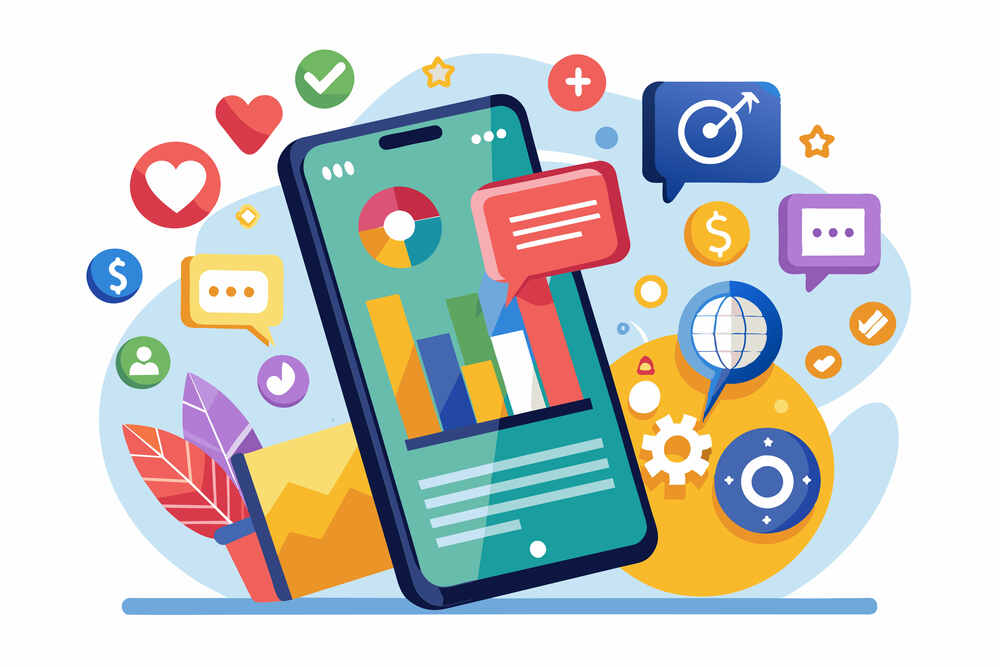How B2B SEO Solutions Drive Scalable Demand Generation
Discover how B2B SEO solutions drive scalable demand generation by attracting high-intent buyers, building authority.

WhatsApp automation helps small businesses respond faster, manage leads, and increase sales without adding headcount. This guide explores how it works, real-life examples, and easy steps to get started — even with no technical background.
For most small businesses, time is money, and both are in short supply.
Between managing inventory, replying to customers, chasing leads, and trying to grow, owners often find themselves wearing too many hats. While large companies can afford full support teams and enterprise CRMs, small businesses have to get creative with their resources.
That’s where WhatsApp automation comes in.
With over 2.5 billion active users worldwide, WhatsApp is already one of the most popular communication channels on the planet. But when paired with automation, it becomes a powerful, low-cost tool for small businesses to boost sales, improve service, and free up time, without hiring more staff.
WhatsApp automation is the process of using software or tools to automatically send, respond to, and manage WhatsApp messages. Instead of replying to each message manually or copying and pasting the same answer 30 times a day, businesses can set up smart replies, chat flows, and notifications that run on autopilot.
It’s like hiring a virtual assistant that works 24/7 inside your WhatsApp inbox.
For small business owners, that means faster customer support, better lead management, and more time to focus on growing the business.
Here’s why WhatsApp is an ideal platform for small businesses:
Time is critical in business. A lead that waits 2 hours for a reply might already be chatting with your competitor. With automation, you can send instant responses even when you’re busy or offline.
Example:
“Thanks for reaching out! We’ve received your message and will get back to you shortly. In the meantime, here’s a link to our product catalog.”
This sets expectations and keeps the customer engaged.
Let’s say someone asks for a quote or product price — you reply, but they disappear.
Automation lets you set up smart follow-ups:
These gentle nudges can dramatically increase your conversion rates — without you lifting a finger.
Tired of typing the same answers again and again?
Automate FAQs like:
With quick replies or chatbot flows, customers get the answers instantly, and you save hours every week.
Customers don’t like waiting. They don’t like being ignored. And they don’t like jumping through hoops.
WhatsApp automation ensures your customers feel heard, supported, and valued — even when you’re not available. This fosters trust and loyalty, ultimately leading to repeat business.
Automation isn’t just for support. You can use it for marketing and sales too.
Send personalized messages based on:
Since WhatsApp messages feel more personal than emails, they tend to perform better in terms of click-throughs and conversions.
Let’s explore how different small businesses can use WhatsApp automation in simple, powerful ways:
Use Case: New product launch. Automation Idea: Broadcast message to VIP customers
“Hi Priya! We just dropped our new summer collection. Want early access? Click here!”
Use Case: Table reservations & menu sharing Automation Idea:
Use Case: Appointment Reminders Automation Idea:
“Reminder: You have an appointment with Dr. Mehta at 5 PM today. Reply YES to confirm or RESCHEDULE if needed.”
Use Case: Booking confirmations and follow-ups. Automation Idea:
Use Case: Abandoned cart recovery Automation Idea:
“You left something in your cart! Complete your order now and get 5% off — valid for the next 2 hours.”
You don’t need to be a developer or tech expert. Here’s a beginner-friendly roadmap:
If you haven’t already, download WhatsApp Business from the Play Store or App Store and register your business.
Select a platform that suits your needs and budget. Popular options include:
Most tools offer free trials or affordable plans for small businesses.
Start with simple messages like:
Most tools let you customize these with your brand’s tone of voice.
Use visual builders to design chat flows:
You don’t need coding — just drag, drop, and write messages.
Test your flows on your WhatsApp first. Once satisfied, go live and start collecting results.
> Keep it human
Even automated messages should sound friendly and personal. Avoid sounding robotic.
> Don’t spam
Only send promotional messages to customers who opted in. Otherwise, Meta might restrict your account.
> Measure what matters
Track open rates, response times, and sales to see what’s working and optimize accordingly.
> Combine automation with real humans
Utilize automation for the basics, but always provide customers with the option to speak with a live representative when needed.
Small businesses don’t have time or budget to waste. That’s why WhatsApp automation is such a game-changer.
It allows you to:
And the best part? You’re meeting customers where they already are — on their phones, in WhatsApp, every single day.
Whether you run a bakery, a clinic, or an online store, this is your chance to automate the boring stuff and focus on what matters: running and growing your business.